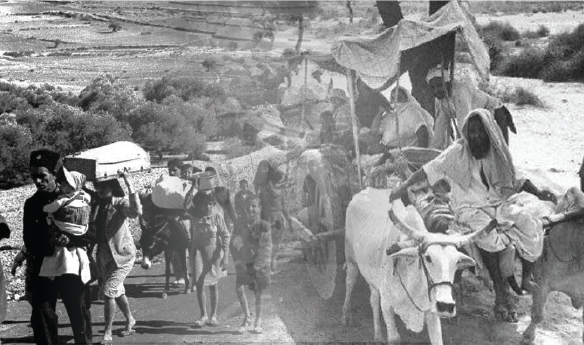
- 15 Aug 2018
[Transsystemic Law] Reflections on the Partitions of India and Palestine after 70 years
(This event was organised by NUS Institute of South Asian Studies and MEI’s Transsystemic Law Research Cluster, as part of its annual conference series.)
Workshop Statement
Despite the similarities between the partitions of British India and Mandate Palestine, there have been few comparative studies. This is surprising as partition was raised as a possible solution to the dispute in Palestine as early as 1937. In 1947, both Indian and Pakistani diplomats took leading roles in debates at the United Nations General Assembly (UNGA) on the Partition Plan for Palestine, arguing in favour of a federal scheme that the Indian National Congress had rejected in India. Just over three months after the partition of British India on 15 August 1947, the UNGA voted by a slim majority to partition Palestine. The United Kingdom abstained, while India and Pakistan voted against the Plan.
The UN Partition Plan for Palestine, adopted by the UNGA on 29 November 1947, was frustrated by the outbreak of war between Israel and the Arab states in 1948. Yet, despite that war, and the numerous conflicts between Israel and the Palestinians since then, the UN Partition Plan continues to be cited in UN debates to this day. Indeed, the two-state solution is, in many ways, a truncated form of partition. In contrast, the partition of British India has consistently been viewed in a more critical light, especially in India.
This workshop, one of the first of its kind, provided opportunities for scholars to break out of the mould of looking at the partitions of the Middle East and South Asia individually, and to look at the bigger picture and the tapestries that link them. What do these pivotal moments tell us about the state of international relations in this period, and about partition more generally? Rather than thinking of partition as a uniquely South Asian, Palestinian Arab, Jewish or British phenomenon, it was argued that it is necessary to look at partition holistically and at the political leaderships, ideologies, laws, and institutions that connect them.
Click HERE to access the draft conference programme.
Panel Topics
- Introductory Lecture: What is Partition?
- Panel Discussion One: The Partition of British India (August 1947)
- Panel Discussion Two: The Partition of Mandate Palestine (November 1947)
- Panel Discussion Three: The Partitions of India and Palestine compared
- Panel Discussion Four: Consequences of Partition for South Asia, the Middle East, and Beyond
Registration was compulsory and registration took place HERE.
About the Speakers
Event Details
Asia-Europe Foundation
31 Heng Mui Keng Terrace
Singapore 119595




